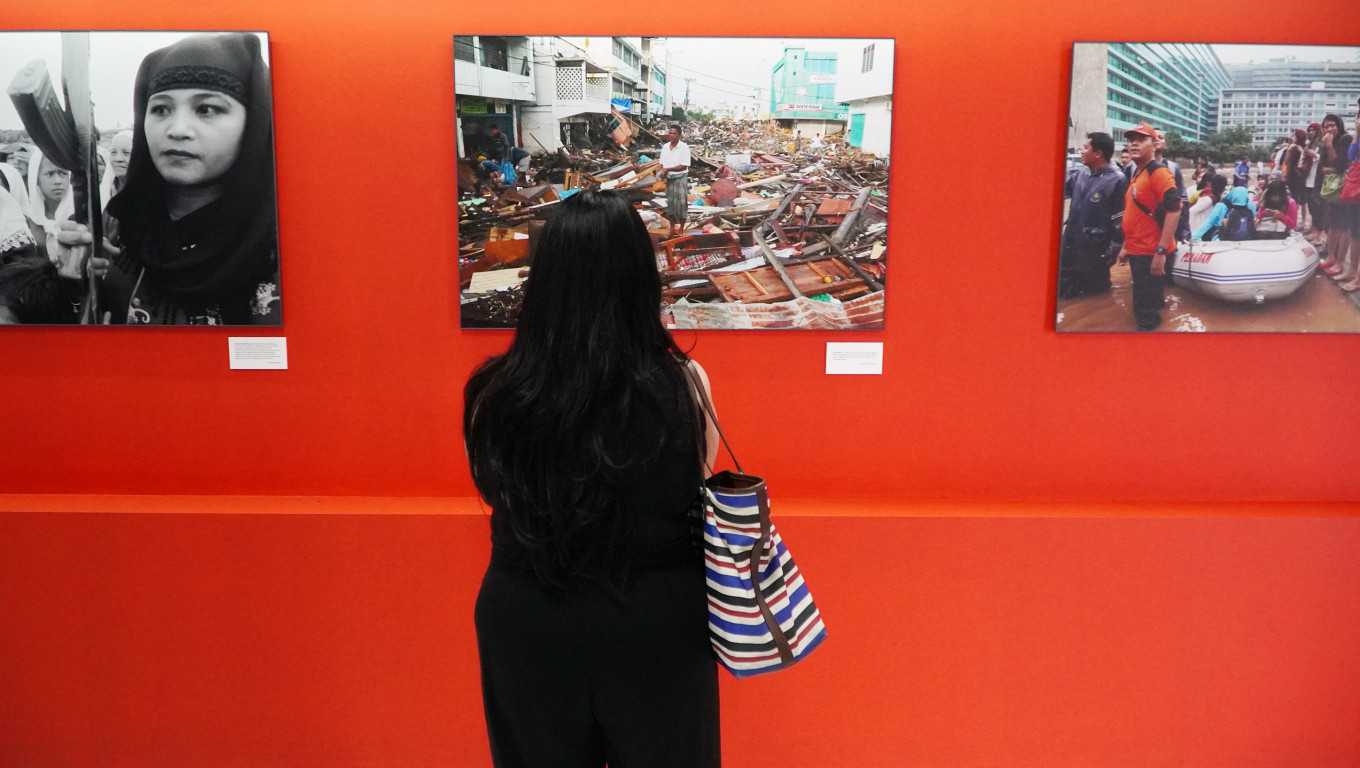Popular Reads
Top Results
Can't find what you're looking for?
View all search resultsPopular Reads
Top Results
Can't find what you're looking for?
View all search resultsBending the arc of democracy
Anyone old enough to remember the heady summer of 1998 who sees the direction of the country’s politics today will feel we are still living under the shadow of Soeharto.
Change text size
Gift Premium Articles
to Anyone
I
f you can, make time to see the photo exhibition organized for the 40th anniversary of The Jakarta Post, which will run through the second week of August. And make sure that after viewing all the photos on display, as you are leaving the exhibition area, you turn back to look at the arch that stands in the hall.
Framed by that arch, hung on a red wall, is the exhibition’s sole photograph of former president Soeharto. He is pictured at the March 1998 session of the People’s Consultative Assembly (MPR) as the body was preparing to appoint him to yet another five-year term.
Soeharto resigned from office just months after the photo was taken, and Indonesia ushered in the Reform Era, with the promise of democracy, transparency and accountability.
But anyone old enough to remember the heady summer of 1998 who sees the direction of the country’s politics today will feel we are still living under the shadow of Soeharto.
It is as if the strongman never left the building.
Only last year, the engaged public faced down efforts from members of the political elite to extend the term of President Joko “Jokowi” Widodo past its constitutional end-date.
And consider the plan to reinstate the closed-list proportional representation system. Concocted by the country’s largest political party, the plot would wind back the clock to a New Order-style electoral arrangement and allow party elites to have complete control over which legislative candidates sat in the House of Representatives.
One of the major promises of the Reform movement, and one that was reasonably successfully implemented in the early 2000s, was bringing the Indonesian Military (TNI) back to the barracks and out of civilian political life.
But in the past five years, we have seen more and more active soldiers taking civilian public-sector positions, ranging from leading the government’s COVID-19 task force to heading the National Disaster Mitigation Agency (BNPB).
What we saw late last month, when soldiers in military fatigues strode into the Corruption Eradication Commission (KPK) headquarters and demanded that graft charges against two active TNI officers be dropped, was the consequence of countless small political exceptions that have once again normalized the military’s role in politics.
And now, as the country prepares to enter its fifth election cycle after the fall of Soeharto, it appears the journey of the Reform Era has come full circle. A key figure in the New Order era, a military general who once had a familial bond with Soeharto, is now the leading candidate for the presidency in 2024.
We may want to believe that today’s political figures have an interest in playing by the rules and maintaining the current democratic arrangement, but we must also prepare ourselves for the possibility that things could take turn for the worse – and that it could happen quickly.
After all, recent events in the region don’t offer much hope for the health of liberal democracy.
In Thailand, the clear winner of a general election has not only been denied the chance to govern, but now, the party is on the verge of being an outcast in its own country.
In neighboring Cambodia, an election was engineered to allow the ruling dynasty to keep its years-long stranglehold on power.
Last year, in the Philippines, a democratic process brought back to power the scion of a political family that less than three decades ago was chased out of power in a people’s power movement.
History does repeat itself, and it certainly has a cruel sense of humor.











